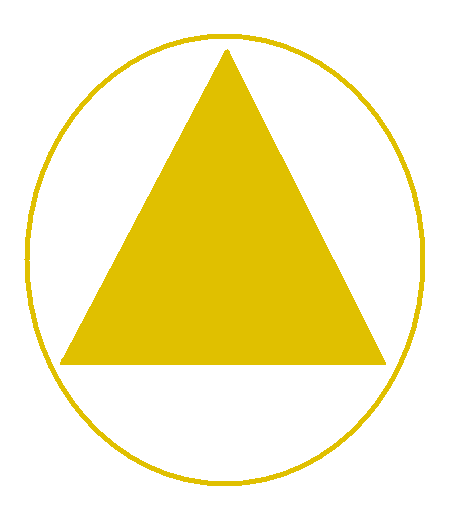Step Two of the Seven Steps of Alcoholics Anonymous:
| "Came to believe that a Power greater than ourselves could restore us to sanity."1 |
From Chapter 5 ("How It Works") of the "Big Book" of Alcoholics Anonymous:
| "So our troubles, we think, are basically of our own making. They arise out of ourselves, and the alcoholic is an extreme example of self-will run riot, though he usually doesn't think so. Above everything, we alcoholics must be rid of this selfishness. We must, or it kills us! God makes that possible. And there often seems no way of entirely getting rid of self without His aid. Many of us had moral and philosophical convictions galore, but we could not live up to them even though we would have liked to. Neither could we reduce our self-centeredness much by wishing or trying on our own power. We had to have God's help."2 |
From the chapter titled "Step Two" in Twelve Steps and Twelve Traditions:
| "The moment they read Step Two, most A.A. newcomers are confronted with a dilemma, sometimes a serious one. How often have we heard them cry out, 'Look what you people have done to us! You have convinced us that we are alcoholics and that our lives are unmanageable. Having reduced us to a state of absolute helplessness, you now declare that none but a Higher Power can remove our obsession. Some of us won't believe in God, others can't, and still others who do believe that God exists have no faith whatever He will perform this miracle. Yes, you've got us over the barrel, all right-but where do we go from here?'"3 |
From Chapter 1 ("Bill's Story") of the "Big Book" of Alcoholics Anonymous:
| "But my friend sat before me, and he made the point-blank declaration that God had done for him what he could not do for himself. His human will had failed. Doctors had pronounced him incurable. Society was about to lock him up. Like myself, he had admitted complete defeat. Then he had, in effect, been raised from the dead, suddenly taken from the scrap heap to a level of life better than the best he had ever known!
"Had this power originated in him? Obviously it had not. There had been no more power in him than there was in me at that minute; and this was none at all. "That floored me. It began to look as though religious people were right alter all. Here was something at work in a human heart which had done the impossible. My ideas about miracles were drastically revised right then. Never mind the musty past; here sat a miracle directly across the kitchen table. He shouted great tidings."I saw that my friend was much more than inwardly organized. He was on a different footing. His roots grasped a new soil. "Despite the living example of my friend there remained in me the vestiges of my old prejudice. The word God still aroused a certain antipathy. When the thought was expressed that there might be a God personal to me this feeling was intensified. I didn't like the idea. I could go for such conceptions as Creative Intelligence, Universal Mind or Spirit of Nature but I resisted the thought of a Czar of the Heavens, however loving His sway might be. I have since talked with scores of men who felt the same way."My friend suggested what then seemed a novel idea. He said, 'Why don't you choose your own conception of God?'" "That statement hit me hard. It melted the icy intellectual mountain in whose shadow I had lived and shivered for many years. I stood in the sunlight at last."It was only a matter of being willing to believe in a Power greater than myself. Nothing more was required for me to make my beginning. I saw that growth could start from that point. Upon a foundation of complete willingness I might build what I saw in my friend. Would I have it? Of course would!"4 |
From the chapter titled "Step Two" in Twelve Steps and Twelve Traditions:
| "'First, Alcoholics Anonymous does not demand that you believe anything. All of its twelve steps are but suggestions. Second, to get sober and to stay sober, you don't have to swallow all of Step Two right now. looking back, I find that I took it piecemeal myself. Third, all you really need is a truly open mind. Just resign from the debating society and quit bothering yourself with such deep questions as whether it was the hen or the egg that came first. Again I say, all you need is an open mind.'"5 |
More from the chapter titled "Step Two" in Twelve Steps and Twelve Traditions:
| "'This is only one man's opinion based on his own experience, of course. I must quickly assure you that A.A.'s tread innumerable paths in their quest for faith. If you don't care for the one I've suggested, you'll be sure to discover one that suits if only you look and listen. Many a man like you has begun to solve the problem by the method of substitution. You can, if you wish, make A.A. itself your "higher power." Here's a very large group of people who have solved their alcohol problem. In this respect they are certainly a power greater than you, who have not even come close to a solution. Surely you can have faith in them. Even his minimum of faith will be enough. You will find many members who have crossed the threshold lust this way. All of them will tell you that, once across, their faith broadened and deepened. Relieved of the alcohol obsession, their lives unaccountably transformed, they came to believe in a Higher Power, and most of them began to talk of God.'"6 |
A Higher Power: Some Buddhist Perspectives (Take One)
If you ask four recovering alcoholic Buddhists working the 12 Steps who or what is their Higher Power, you are liable to get at least eight different answers. Those answers would probably be closer if these Buddhists all listened to the teachings and practiced in the ways of the same sect or "school" of Buddhism. One element that is common among nearly all (if not all) schools of Buddhism is the practice of taking refuge in the Buddha, the Dharma, and the Sangha.
Most commonly, the Sangha refers to the community of Buddhists; but often there can be more than one level of meaning here—in some contexts it may refer to an entire Buddhist community and in others it may refer to only the nuns, monks, and novices in that community. In Mahayana Buddhist schools, especially the Tibetan schools, the term may include or especially refer to the transcendant bodhisattvas—those who have attained very great level of spiritual awakening but, instead of becoming full buddhas after they die, they are repeatedly reborn in this world out of their compassionate desire to save all sentient beings in the universe.
The term Dharma also has different levels of meaning. Most commonly, it may mean the universal teachings of Siddhartha Buddha as a fully awakened spiritual teacher. But Dharma can also mean universal laws such as the law of karma.
The Buddha may mean Siddhartha Buddha himself as a historical, fully awakened, spiritual teacher. But in some Mahayana Buddhist Schools it may refer to a transcendent Buddha such as Siddhartha Buddha after he died and entered the state of Nirvana — or a transcendent Buddha such as Amitabha Buddha who dwells in a "Pure Land", a realm into which a person may be re-born and where it is not difficult to become fully enlightened. Also, in some Mahayana schools, the Buddha we take refuge in may be our basic true nature, our "Buddha Nature" which we do not realize right now.
Before we go further on about integrating the spiritual principles of the Twelve Steps with spiritual principles of Buddhism, it is important that we first have some basic understanding of the most fundamental principles of Buddhism. This we do here in this website beginning with the webpage titled The Spiritual Goals of Buddhism and of Alcoholics Anonymous.
A Note on Buddhist Schools
According to most surviving Buddhist traditions that say anything about it, the original society of Buddhists monks split into two different "schools" about 100 years after the passing away of Siddartha, the Buddha. Since that time, there have been many more splits. Of the eighteen or so "early schools" which arose before about 150 BCE, only the Theravada School survives today. Theravada means "The Way of the Elders" in the ancient Pali language. The Theravada School claims to hold to be one of the first two schools of Buddhism—the one that strictly adhered to the original teachings and rules taught by Siddhartha (a.k.a. Shakyamuni Buddha) himself. After 150 BCE or so, there arose Mahayana Buddhism which today consists of a number of schools. Most scholars today believe that, going back to the original schism that split the Buddhist Community into two, Theravada Buddhism stemmed from one side of the split and, much later, Mahayana Buddhism stemmed from the other side.

